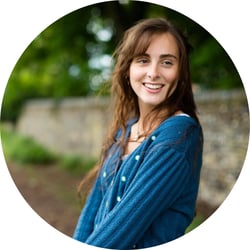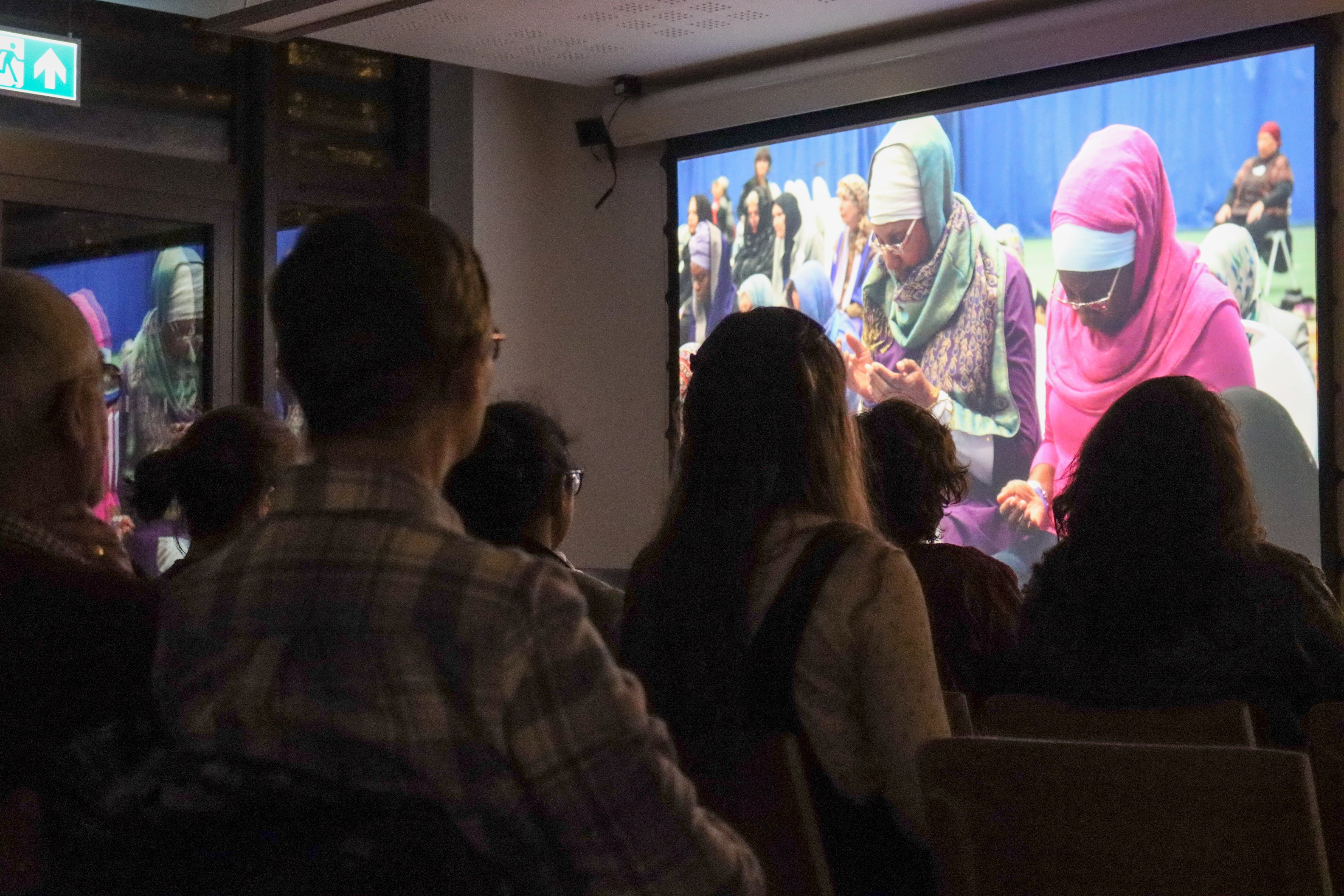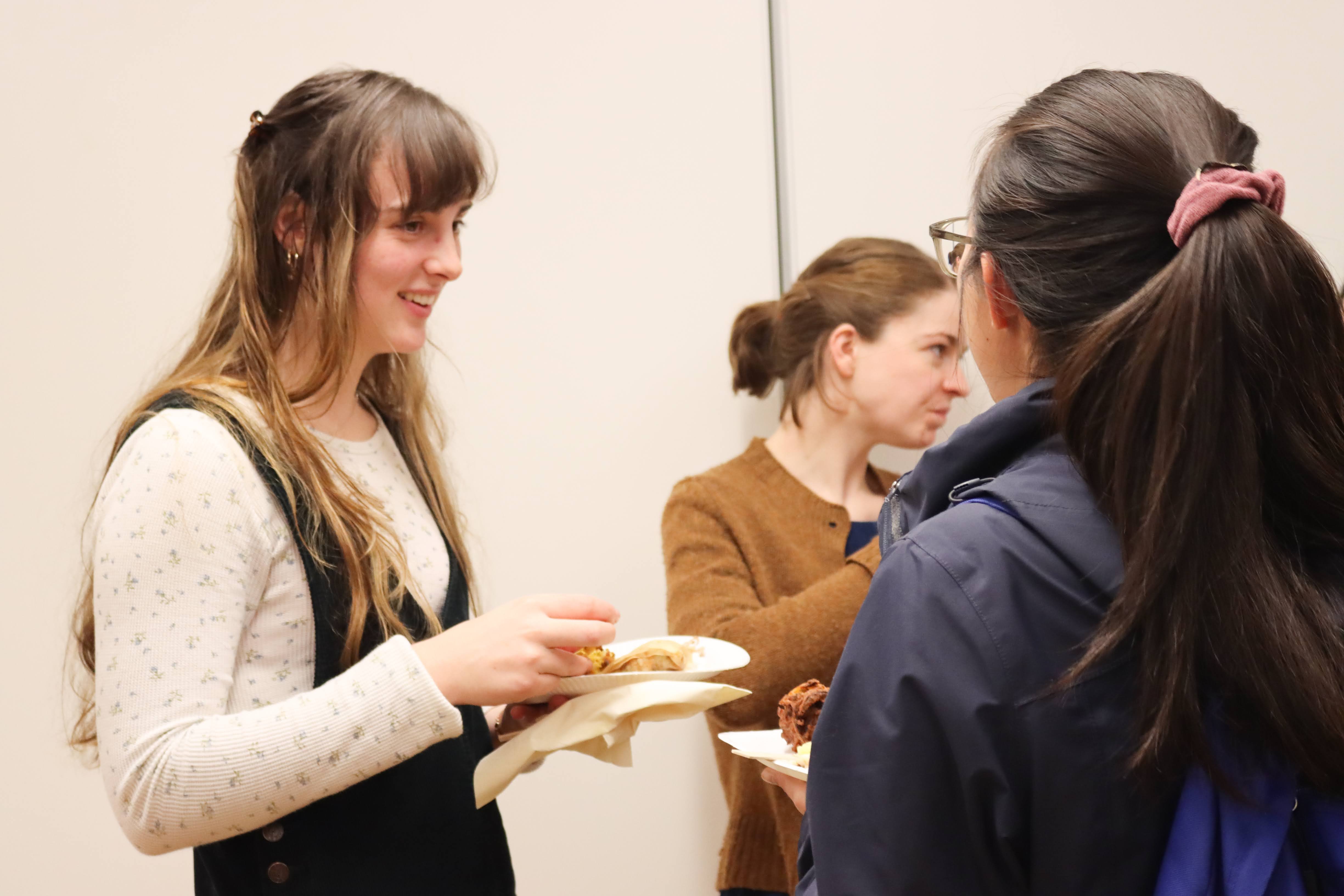
International Women's Day falls on 8th March each year. To mark it, we gathered the stories of seven women peacebuilders from our global network.
Name: Sienna James
Location: Cambridge, England
Religion: Christian
Programme: Stranger/Sister Interfaith Event
"Hi! I'm a university student invested in how we can orient ourselves towards peaceful reconciliation and what this looks like for different communities."
Discovering Dialogue
I don’t know what debate means where you come from. For me, debate can often mean the exploration of hastily proclaimed opinion, or more simply, postulation. Questions about faith are asked between friends over food, at evangelical events, or in hobbit-sized college kitchens in the early hours. Talking about faith, in the academic world of undergraduate life at Cambridge, often feels less like a dialogue around meaning and more like an attempt to establish one’s own opinion on - well, anything.
These conversations are varied and usually great fun. However, I often find myself craving a steadier, thoughtful and more measured environment where fundamental respect is a cornerstone of discussion and divergent opinions are met with grace. It was this I found at the Rose Castle Interfaith Week Event.
A group of Cambridge residents - students, researchers, ministers - gathered in the Woolf Institute of a weekday evening to probe a little further into religion, meaning and what effective interfaith work might look like. The screening of the Stranger/Sister documentary explored the remarkable story of two women of different faith backgrounds who together created a network of Jewish and Muslim women and girls called Salaam-Shalom. We were joined by Atiya, the film director, who also helped facilitate discussions after the screening.

Cambridge screening of the Stranger/Sister documentary.
The group, consisting of a plethora of worldviews, split into three groups to discuss the documentary from different angles. I chose Atiya’s group because I wanted to find out more about her initial vision for the film and how it has become an international example of interfaith.
The issues raised in our discussions initially seemed insurmountable, such as the Israel-Palestine conflict. Others asked questions I hadn’t considered. At each turn, I was surprised at the level of care and consideration in the discussion. We touched on topics that interfaith groups continually find challenging to reconcile, such as the person of Jesus, but mostly we talked about our experiences of interfaith. What worked? What hadn’t? Why was the Salaam-Shalom example so striking as a sustainable example, and how can it be replicated?

Sienna during the post-screening dinner and discussion.
As a teenager, I thrived off questions commonly found in the apologetic arena. I was on a quest for pocket-sized answers but the bulging bookshelf back home is evidence of my unsuccess. I was blind to the idea that maybe these authors weren’t looking for one sentence solutions but thoughtful dialogue. They gave intriguing and convincing arguments, but after a while, I began to wonder less whether the Christian God exists, but whether the Christian system of meaning actually functioned effectively in communities. Does it truly love and support the most vulnerable people around us? It became a question I found difficult to ask without also considering the crucial role of other religious groups and how they too lifted up the people most in need.
This idea of promoting not only hard conversations but also practical community collaboration is rare but, as we witnessed in the example of the Sisterhood, not impossible. Atiya was grounded as she spoke of the realities of interfaith: some chapters throughout the US had to shut down during the election season because fractions caused groups to drift, and then end healthy interaction altogether. The network is based in America but the notion of decreasing middle ground and increasing polarisation could have taken place here in the UK.
These realities settled the aims of interfaith less in unrealistic expectations from either side of an ideological divide but in tangible service to communities. The Sisterhood of Salaam Shalom was an example of hope - a purposeful overcoming of long-term distrust between two groups, not despite their difference, but because of it.
Update: Since the time of writing, Sienna has continued to be involved with the Rose Castle Foundation, learning from our programme facilitators whilst assisting with hospitality and photography.